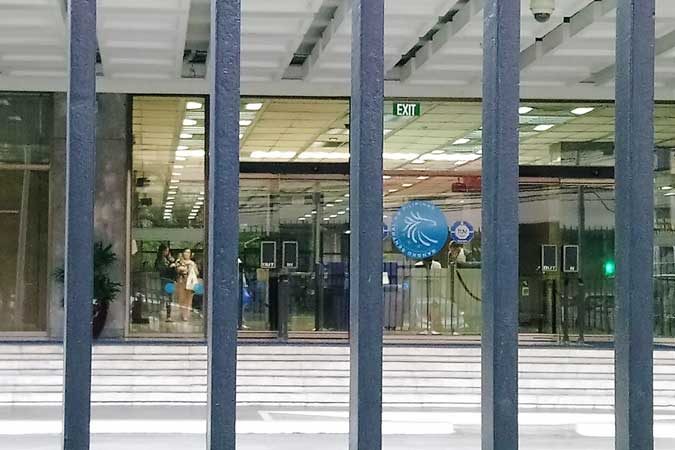
By Luz Wendy T. Noble, Reporter
THE Philippine central bank would probably remain dovish and might cut benchmark interest rates again next month and in the next quarter as the recovery outlook remains uncertain, analysts said.
“If the pace of economic recovery continues to underperform official forecasts, as we expect in the near term, then policy rate cuts will be warranted,” Nomura Global Markets Research analysts Euben Paracuelles and Rangga Cipta said in a note.
Further cuts would likely come especially as inflation remains benign and stays within the target of the Bangko Sentral ng Pilipinas (BSP), whose monetary policy decisions continue to rely on data, they added.
“We reiterate our forecast that BSP will cut its policy rate by another 50 basis points (bps) to 1.5%, likely delivering 25 bps at its next monetary board meeting in December and then another 25 bps in the first quarter of 2021,” Mr. Paracuelles and Mr. Cipta said.
The central bank unexpectedly cut benchmark rates to a record on Thursday, citing the uncertainty caused by a fresh surge in coronavirus cases globally and recent typhoons on the struggling economy.
The economy shrank by 11.5% in the third quarter, bringing the total contraction in economic output for the three quarters to 10%.
Central bank Governor Benjamin E. Diokno also cited the continued contraction in domestic output and weak confidence among companies and households.
“The Monetary Board assessed that there remains a critical need for continuing policy support measures to bolster economic activity and boost market confidence,” he added.
The policy-making Monetary Board has slashed 200 bps from key interest rates this year to support the virus-stricken economy. This brought the overnight reverse repurchase, lending, and deposit facilities to new record lows of 2%, 2.5%, and 1.5% respectively.
The BSP expects inflation to average at 2.4% this year and at 2.7% next year, well within its 2-4% target.
Despite rate cuts this year, lending growth eased to 2.8% in September, the slowest in more than 13 years, as banks tightened their credit standards while borrowers’ confidence remained low.
“The benchmark overnight reverse repurchase rate is unlikely to be the only tool the BSP will utilize,” Sophia Ng, an analyst at Mitsubishi UFJ Global Markets Research, said in a separate note on Friday.
The central bank stands ready to “deploy the full arsenal of tools” as needed, she said, citing Mr. Diokno.
SLOW PACE
The central bank might also further cut the reserve requirement ratio for banks or may do another tranche of lending to the National Government, Ms. Ng said.
She said the Philippines is unlikely to get vaccines for the coronavirus in the first half of next year, which could lead to a slow recovery as restrictions remain in place.
The Monetary Board is authorized to cut the reserve ratio by as much as 400 bps this year. It has slashed the ratio by 200 bps for big banks to 12%, and by 1% for thrift and rural banks to 3% and 2%, respectively.
Meanwhile, the slow pace of fiscal stimulus measures from the government is a major concern and may force the central bank to cut rates further, ANZ Research Chief Economist for Southeast Asia and India Sanjay Mathur and economist Kanika Bhatnagar said.
“We do not rule out further rate cuts next year,” they said in a note. “Even so, in our view its efficacy will be limited by weak transmission.”
Fiscal measures from the Philippine government are equivalent to 3.9% of the gross domestic product (GDP), according to the policy tracker of the International Monetary Fund.
Fiscal responses from its neighbors are bigger including Malaysia at 5% of GDP, Thailand at 9.6%, Vietnam at 4.2% and Indonesia at 4.4%.
Congress passed a law in March to provide P275 billion in stimulus funds to sectors affected by the pandemic.
It allotted another P165.5 billion in a follow-up law in response to the crisis. The law also allowed the central bank to advance as much as P850 billion to the National Government at zero percent interest.
Lawmakers are also trying to fast-track the approval of the P4.5-trillion national budget for next year as it battles the COVID-19 pandemic.
